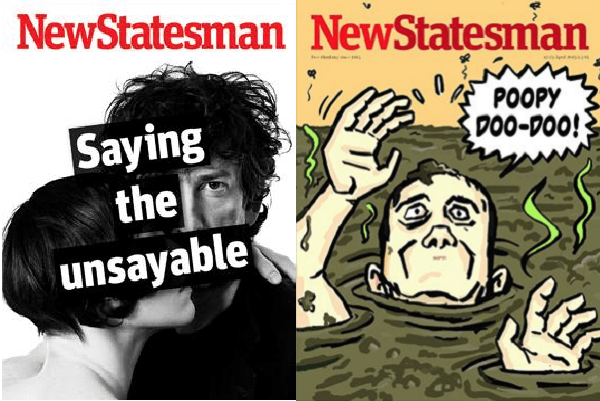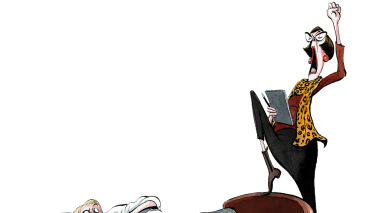This week’s New Statesman, guest-edited by Neil Gaiman and Amanda Palmer, is titled ‘Saying the unsayable’. It promises to ‘address the ideas of censorship, taboos, offence and free speech’.
The magazine has Stephen Fry revealing two opinions that will get him in ‘trouble’, as well as Rowan Williams writing on ‘Why religion needs blasphemy’. It was also supposed to have cover art penned by the American cartoonist Art Spiegelman, with the magazine even running a teaser of the artwork earlier this week on their website.
Alas this article has now been taken down, and the cover image of the magazine changed to a photo of guest editors Palmer and Gaiman.
Now, Spiegelman has accused the magazine of censoring him. In a post on his Facebook page, Spiegelman says that he pulled the special cover he had drawn for the magazine at the last minute after the magazine went back on an agreement to include his ‘First Amendment Fundamentalist’ full-page cartoon. The cartoon in question referenced the Charlie Hebdo cartoonists.
‘I yanked that ball-gagged New Statesman cover at the very last minute!… It’s one thing to find a way to Draw the Undrawable for a special issue called “Saying the Unsayable” but I just couldn’t Accept the Unacceptable when the mag at the last minute WELCHED on their agreement to include my “First Amendment Fundamentalist” page .’
Spiegelman also offers a glimpse of an initial cover he drew for the issue, which he says now seems rather fitting:
It seems that for the New Statesman some things are unsayable after all.
Update: The New Statesman denies Spiegelman’s claim that there was an agreement to publish the cartoon:
‘Art Spiegelman’s Facebook statement is inaccurate – there was never an agreement to publish his cartoon in the New Statesman. We initially turned down First Amendment Fundamentalist in February (as did many other British publications) as we had already run cartoon tributes to Charlie Hebdo. We had no idea he wanted it published as a condition of his doing the cover for our guest edit – he never told us nor did a message to that effect reach us.
The first we heard of it was on Tuesday night, when the Wylie Agency, who represent him, contacted us and began issuing threats and making unreasonable demands. There is no conspiracy, merely a cock-up: an unfortunate combination of bad communication, heavy-handed demands by a big-name artist and his agents, and deadline pressures. We wish Spiegelman the best of luck in finding a UK publisher for First Amendment Fundamentalist.’









Comments